OCZ Vector (256GB) Review
by Anand Lal Shimpi on November 27, 2012 9:10 PM ESTAnandTech Storage Bench 2011 - Light Workload
Our new light workload actually has more write operations than read operations. The split is as follows: 372,630 reads and 459,709 writes. The relatively close read/write ratio does better mimic a typical light workload (although even lighter workloads would be far more read centric).
The I/O breakdown is similar to the heavy workload at small IOs, however you'll notice that there are far fewer large IO transfers:
| AnandTech Storage Bench 2011 - Light Workload IO Breakdown | ||||
| IO Size | % of Total | |||
| 4KB | 27% | |||
| 16KB | 8% | |||
| 32KB | 6% | |||
| 64KB | 5% | |||
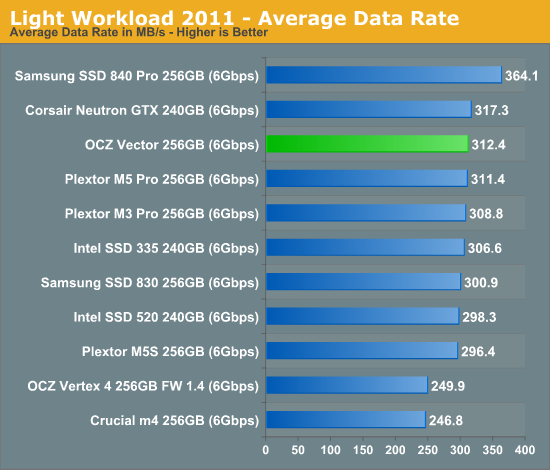
Our light workload remains Samsung's safe haven with the 840 Pro. OCZ's Vector does improve performance considerably over the Vertex 4 (+25%) but Samsung manages a 16% performance advantage here with the 840 Pro.
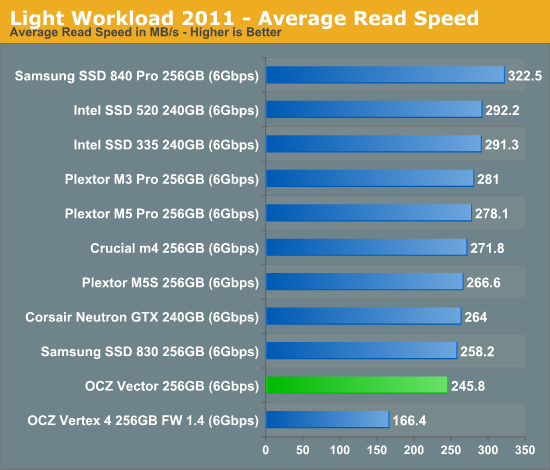
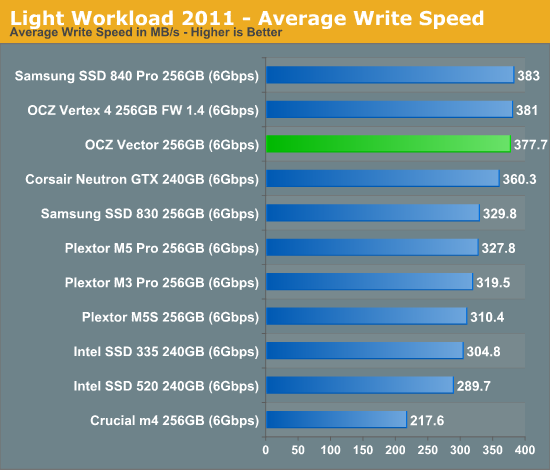
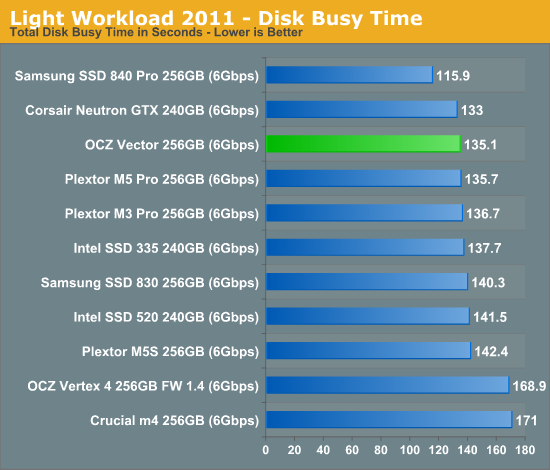
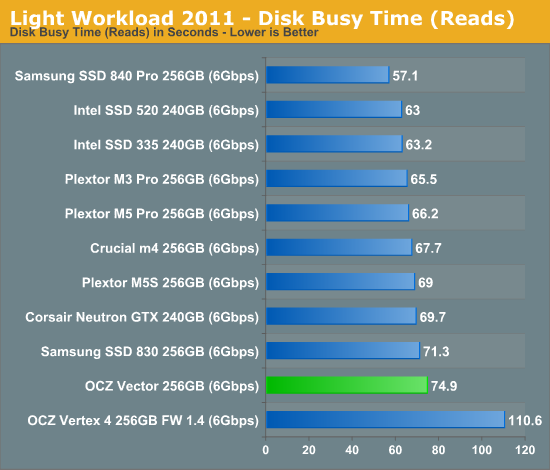
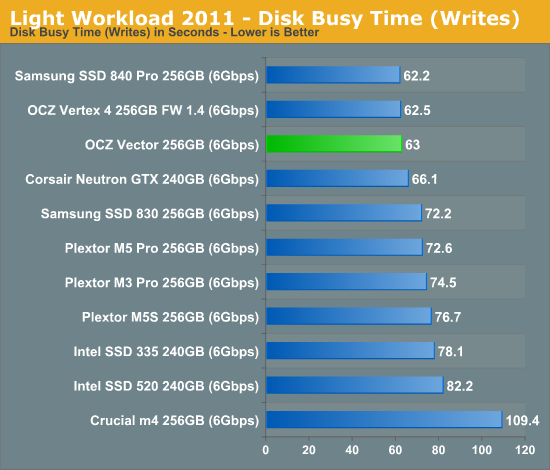










151 Comments
View All Comments
rob.laur - Monday, December 3, 2012 - link
the 840 Pro has terrible recovery when pushed hard.http://www.tomshardware.com/reviews/vector-ssd-rev...
jwilliams4200 - Tuesday, December 4, 2012 - link
I certainly would not call it "terrible" -- it actually looks pretty good to me. And if you want even better performance under sustained heavy workloads, just overprovision the SSD.dj christian - Monday, February 4, 2013 - link
How do you overprovision the SSD?somebody997 - Thursday, April 11, 2013 - link
You don't. Most SSDs will come in 128, 256 or 512 GB sizes. If you have an SSD and you see a decrease in size, usually at 120, 240 or 480 GB sizes, it means the controller has already over provisioned the SSD for you.batguiide - Sunday, December 9, 2012 - link
Thanks for these tips!share a website with you :socanpower,ca,You will love it! I believe!
jdtwoseven - Monday, December 10, 2012 - link
I have WAY too much scar tissue from this vendor to ever buy their products again. I bought five of their SSDs, and was five for five RMAing them back. I have the replacements, but don't trust them enough to use them in anything other than evaulation work because them are just not dependable. I would avoid them like the plague.somebody997 - Thursday, April 11, 2013 - link
I have had multiple SSDs from OCZ, and none of them have failed up till today. I boot Mac OS X from my OCZ Vector, and from every OCZ SSD before that. In my experience, it's not the OCZ SSDs that have terrible reliability, it's Windows. Besides, have any of you guys complaining about OCZ SSDs ever tried turning off automatic disk defragmentation in Windows?Windows has an automated disk defragmenting tool to defragment HDDs, but when you plug in an SSD, the tool is automatically disabled.
Chances are, those of you with SSD problems have a PC with windows that did not successfully disable automated disk defragmentation, and have had your SSDs killed due to that.
Mac OS X does not have an automated disk defragmenting tool as it generally tries not to write in fragments. Without the automated defragmentation tool, my OCZ SSDs have never failed.
ewh - Tuesday, April 30, 2013 - link
My Vector 256 drive completely failed in just under 4 months. OCZ is going to replace it but if the replacement fails in less than 48 months I will look for alternatives.jhboston - Wednesday, May 8, 2013 - link
My OCZ VTR1-25SAT3-512G failed after just 33 days. This was 3 days after the vendors replacement agreement expired. Has to go to OCZ, OCZ is replacing the drive, but they are following a delayed time frame to get the new drive in my hands.djy2000 - Wednesday, July 31, 2013 - link
Ok my OCZ vector catastrophically failed within 3 months :-( Think I'll be going with intel or samsung next